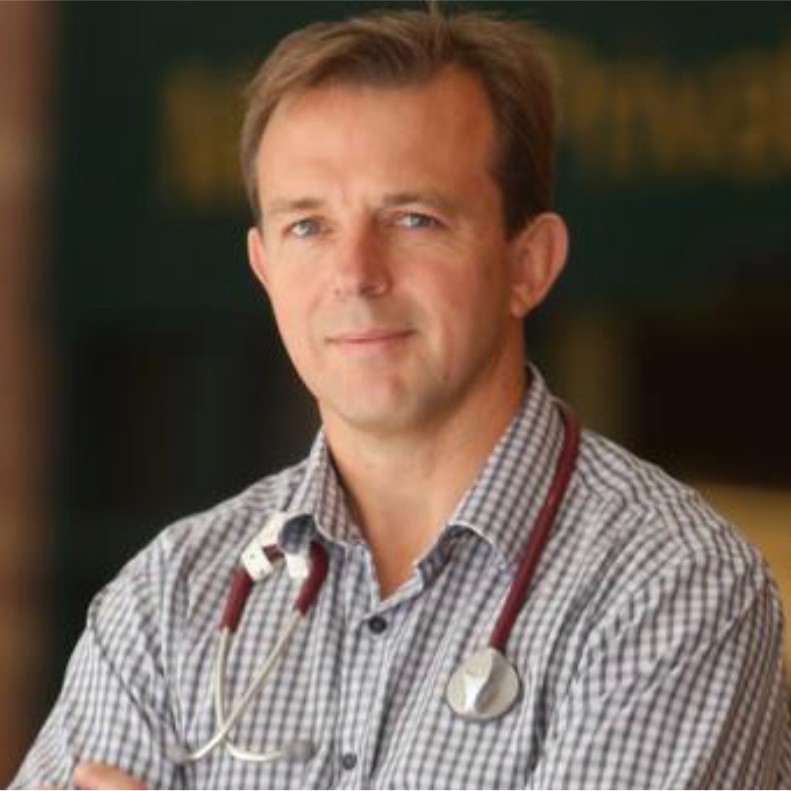Scientific Program
Keynote Session:
Title: COVID-19 Vaccine in Pregnant and Breastfeeding Women
Biography:
Dr. Gulten Guvenc received her Ph.D. from Gulhane Military Medical Academy in 2008. She studied as a visiting scholar at Texas Woman's University from August 2010 through August 2011 in Houston,the USA. She is currently Professor at Obstetrics and Gynecology Nursing Department in Gulhane Faculty of Nursing, University of Health Sciences Turkey. Her research interests include early detection and prevention of gynecological cancers, breast cancer, attitudes towards vaccination, women’s health and nursing education. Most of her research involves in developing and validating research instrument, assessing health beliefs that influence health behaviors, and evidence-based nursing interventions. She has peer-reviewed publications in reputed journals and has been serving as reviewer.
Abstract:
Statement of the Problem: The new type of coronavirus infection (COVID 19), whose agent is SARS CoV 2 has been globally spreading since the end of December 2019 and it has now become a pandemic. Covid 19 pandemic has led to significant mortality and long-term morbidity globally. Risks associated with COVID 19 infection have been reported to affect pregnant women and women in the lactation period. Pregnant women are more likely to develop a more severe course of COVID 19 infection than their non-pregnant peers. Breastfeeding women are believed to have similar risks of serious disease as non-pregnant women. Previous studies have revealed that immunization is effective and safe, especially for the prevention of severe forms of the COVID 19disease. Evidence continues to build showing that COVID 19 vaccination during pregnancy and lactation period is safe and effective. Severe disease and mortality rates have declined by the development of Covid-19 vaccines and utilization by the countries.
Methodology & Theoretical Orientation: In this review, the safety and effectiveness of Covid-19 vaccines in pregnant and breastfeeding women were summarized with a review of limited data and theoretical considerations of recommended guidelines for clinical use and published studies. A systematic search was conducted on PubMed, MEDLINE, and Embase to identify studies on pregnant and breastfeeding women and COVID 19 vaccine. This review also included the collaborative efforts of the World Health Organization (WHO), Centers for Disease Control and Prevention (CDC), American College of Obstetricians and Gynecologists (ACOG), National Institutes of Health (NIH), and Advisory Committee on Immunization Practices (ACIP). The search was restricted to the English language. The search terms includes pregnancy, breastfeeding, lactation, COVID-19 vaccine and related terms.
Findings: This review demonstrated that COVID-19 vaccination in pregnant and breastfeeding women is effective in preventing the transmission of COVID 19. Primary vaccine administration earlier rather than later in gestation provides the most maternal benefit as it reduces the maternal risk of hospitalization because of COVID-19, death from COVID-19, and COVID 19 related pregnancy complications during more weeks of the pregnancy. Despite tremendous progress in vaccine
development and administration, the current acceptance level of the COVID-19 vaccine remains inadequate. Health care providers provide evidence-based information and allowing the individual to weigh the risk and benefits of vaccination to make a well-informed decision.
Conclusion & Significance: The results of this review support current recommendations of WHO and obstetrical and gynecologic societies that COVID-19 vaccines can be used safely during pregnancy and lactation. A clear indication from healthcare providers would improve adherence to vaccination programs and reduce women’s anxiety with the decision.
Guidelines supports that COVID-19 vaccination be recommended to all pregnant and breastfeeding women, in the absence of a specific contraindication.
Title: Cancer Vaccines and Oncology
Biography:
Robens Molaire Saintil was born in Haiti. He lives there until June 1993.He starts to study medicine in the Dominican Republic in 1994. He is a medical doctor since 2000. He is Dominican since 2001. He did residence in internal medicine in Padre Billini Hospital from 2003 to 2006 and clinical Oncology in Heriberto Pieter Oncology Institute from 2007 to 2010. The Dominican Republic. He has a master in hospital management in Madrid, Spain in 2014 to 2015, another master in pain in Spain in august 2020 to march 2022 and a PhD in nutritional Science at Atlantic International University of USA, but I don’t have this diplome for many reasons. He had colorectal cancer from march 2021 to April 2022. Now he is in observation. To be update, he continues with MEDSCAPE and NCCN for continuing medical education since 2016 and has actually approximately 350 credits. Now, he works at a provincial hospital in Monte Plata in the field of internal medicine, Dominican Republic. He is very interested about investigations about this topic and hopes the scientists can early have good results for the patients’ treatment.
Abstract:
The future of cancer vaccines is very promising. Effectively, Immunotherapy and vaccines have revolutionized disease treatment and prevention. The idea of a cancer vaccine is to activate the immune system to pick out ways that the cancer is different from normal cells, recognize them as foreign and reject them. Some cancer vaccines have been approved for human use, either like prevention against infections agents associated with cancers, or like therapeutic vaccines used as immunotherapy agents to treat cancers. Therapeutic cancer vaccines differ from preventive ones, and immunotherapy drugs differ from both types of vaccines. Cancer vaccines aim to eliminate tumor cells by stimulating and broadening T cell responses specific for those cells.
Developing cancer vaccines is a field of many interests for scientists, but also with many challenges, like heterogeneity within and between cancer types, screening and identification of appropriate tumor specific antigens, the choice of vaccine delivery platforms.
In all these areas, we have achieved new advances and the vaccines for Covid-19 are new experiences for the field of cancer vaccines, what booted the interests of scientists for its development. In fact, researchers have long hoped to use mRNA vaccines, for a very different purpose, to treat cancer and mRNA-based cancer treatment vaccines have been tested in small trials for nearly a decade, with some promising early results. Too, we hope further advances in those areas to facilitate the development of effective novel cancer vaccines for our patients. The research is growing, but experts warn that widespread use of cancer vaccines is still years away. Nevertheless, they predict their use will become standard practice.
Title: Prevalence and risk factors for SARS-CoV-2 infection and seroprevalence among staff in a national healthcare system
Biography:
Abstract:
Introduction:
While many studies have reported the rate and risk of SARS-CoV-2 infection among healthcare workers (HCWs), there are scant data regarding the impact of employment type and job grades on such risk.
Methods:
We determined the rate of SARS-CoV-2 infection based on a positive nasopharyngeal swab (NPS) PCR among employees of a large national healthcare system. Antibody testing was performed on those who agreed to provide a blood sample. Using logistic regression analysis, we determined the risk of infection (PCR+) associated with demographic characteristics, job family and job grade.
Results:
We identified 35,075 staff (30,849 full-time, 4,226 outsourced) between March 1-October 31, 2020. Among full-time employees, 78.0% had an NPS (11.8% positive). Among outsourced staff, 94.4% had an NPS (31.1% positive). Antibody testing was performed on 33.9% of full-time employees (13.0% reactive), and on 39.1% of the outsourced staff (47.0% reactive). PCR-positivity was higher among outsourced staff (31.0% vs. 18.3% in non-clinical and 9.0% in clinical full-time employees) and those in the low-grade vs. mid-grade and high-grade job categories. Male sex (OR 1.88), non-clinical job family (OR 1.21), low-grade job category (OR 3.71), and being an outsourced staff (OR 2.09) were associated with a higher risk of infection.
Conclusion:
HCWs are a diverse population with varying risks of infection. Clinical staff is at a lower risk likely due to increased awareness and infection prevention measures. The risk is higher for those in the lower socioeconomic strata. Infection is more likely to occur in non-healthcare settings than within healthcare facilities.

Dr.S.S.Sohrab
Professor, Special Infectious Agent Unit (SIAU), King Fahd Medical Research Center, (KFMRC) King Abdulaziz University, Jeddah, S.A.Title: Evaluation of siRNAs as antivirals against MERS-CoV in cell culture
Biography:
Dr. SAYED S. SOHRAB (Professor), Joined King Fahd Medical Research Center, King Abdulaziz University, Jeddah in Feb 2012. He has 16-year experience on Molecular Virology/ biology. Currently, he has 16 accepted proposals as Principal Investigator/Co-Pi from, Ministry of Health, KACST, RDO, Deanship of Scientific Research (DSR), King Abdulaziz University. Currently, he is working on molecular diagnosis of MERS-CoV, SARS-CoV-2, Dengue Virus, Influenza, HPV & Alkhumra virus and vaccine development against MERS and Dengue virus. He has published more than 89 research papers in internationally reputed scientific journals and six book chapters edited by different editors and submitted more than 350 genome sequences in GenBank. His research interest is molecular diagnosis, gene cloning and sequencing, gene construct development for vaccines, recombinant DNA technology, and genetic diversity analysis.
.
Abstract:
The respiratory syndrome caused by Middle East respiratory syndrome Coronavirus (MERS-CoV) was identified in April 2012 from Saudi Arabia. Since then, this has spread to 27 countries with 858 deaths and 2494 laboratory confirmed cases. Currently, there is no vaccine and antiviral therapy available. The Orf 1ab gene mediates the virus replication and the expression of a particular gene can be modulated by RNAi approach. In this work, we have Insilico designed and evaluated the chemically synthesized potential siRNAs in HEK-293-T cell lines. The selected siRNAs were evaluated for cytotoxicity and antiviral activity at various concentrations (0.1-50nm) using MTT assay through Lipofectamine mediated delivery in cell culture. The antiviral activity of siRNAs was analyzed by Real-time PCR. The average CC50 were observed as 272.7 for siRNA-1, 190.1 for siRNA-2, 389.3 for siRNA-3, 261.6 for siRNA-4, 134.5 for siRNA-5, 399.4 for siRNA-6, in HEK 293 cells. The CT value of siRNAs were variable for both cell supernatant and lysate as presented in the table. The siRNA-2 and siRNA-4 were found to show better antiviral activity as compared to others. Based on results obtained in this study, it is concluded that the designing and selection protocol of designed siRNA are very helpful to minimize the possible cytotoxic effects and showed potential antiviral activity of siRNA in Vero cells. The results indicated that the potential siRNAs can be evaluated further in other cell cultures and used as antivirals against MERS-CoV.

Dr. Shashikant Vaidya
Assistant Director and Head Department of Clinical Pathology and Tuberculosis Research Unit , Haffkine Institute, Mumbai IndiaTitle: VACCINE ADJUVANTS: STRIKING THE RIGHT BALANCE
Biography:
Dr. Shashikant Vaidya is Assistant Director and also Head of
Department of Clinical Pathology and Tuberculosis Research Unit, in Haffkine Institute, Mumbai India. He is currently working on Vaccine Adjuvants striking the right balance.
Abstract:
Dr. Shashikant Vaidya The role of an adjuvant is to improve the immunogenicity of antigens, they are often included in vaccines to achieve a range of more specific effects. Majority of vaccines are comprised of highly purified recombinant proteins, or peptides, representing subunits of pathogens. These vaccines lack most of the features of the original pathogen and are often poorly immunogenic. Therefore, need for vaccine adjuvants is greater now than ever before. Preferred strategy for the development of new-generation vaccines is to add highly purified synthetic adjuvants, which will activate only elements of immune response required for protection, and will not trigger a more generalized activation of the immune response. Novel adjuvants are therefore targeted to receptors expressed on antigen-presenting cells like dendritic cells to activate the innate immune system. There is an interest in use of synthetic analogues of these agents due to low cost and can be obtained in highly purified forms like traditional small-molecular-weight drugs ,called as Small Molecule Immune Potentiators (SMIPs). The use of SMIPs as adjuvants allows exploitation of traditional pharmaceutical synthetic approaches, including ability to manipulate compound structures to control performance. Due to advantages more diverse families of SMIPs will be discovered, to allow better manipulation and control of the immune response. Hence, adjuvant formulations will increasingly comprise one or more potent immune potentiators, which will be designed to induce the specific kind of immune response required, formulated into delivery systems, which will be designed to maximize potency and minimize the potential for adverse events, to ensure maximal safety.
Title: HOW DO BACTERIAL VACCINES PROTECT ALLERGY PATIENTS?
Biography:
Dr. Carinani Marcela is an Immunology Researcher. She completed a retrospective cohort study one year after Pandemic Sars Cov-19. Marcela worked as an Immunologic Doctor in medicine since 2012 and based on my knowledge and experience with the bacterial vaccine and suggests the use of bacterial vaccines.
Abstract:
In a study with patients between 5-50 years old, more women than men, they have Allergic Rhinitis to mites, all elevated IgE dosage. Who improved when using bacterial vaccines before starting the winter, they reduced the use of corticosteroids and anti-histamines. The reason for this was that they were protected with bacterial lysates. However, together with us bacterial vaccines were recommended start a diet suppressing milk and derivatives, to reduce intestinal inflammations and decrease abundant nasal discharge. Although not all of them complied with the diet, they only continued with the bacterial vaccine for 30 days in the autumn, before the winter season begins.
CONCLUSIONS:
All the patients who have received bacterial vaccines got better with low nasal symptoms such as sneezing, itchy nose, and rhinorrhoea. Only some need corticosteroids, and nasal spray in the winter and some of them need Montelukastand one patient took antibiotics. But who got better were those who reduced or eliminated milk and derivatives consumption during their treatment and after that. So it is important to use bacterial vaccines in allergic rhinitis to reduce symptoms and also it is important to how the patients eat to decrease intestinal inflammations and allergic rhinitis.
Keywords: Rhinitis, Bacterial Vaccines, Milk.
Title: EFFECT OF COVID 19 PANDEMIC ON THE GLOBAL WORLD
Biography:
National COVID-19 Coordination and RCCE Consultant.Addis Ababa, Ethiopia.
Abstract:
BACKGROUND: Since the occurrence of COVID-19 in the world,it has claimed nearly 1.39 million human lives in the world and more than 1500 lives in Ethiopia. The number of deaths is increasing with variable distribution in the world. Despite its increasing fatality, the clinical characteristics of the deceased patients are not yet fully known. Analyzing the clinical characteristics of deceased patients will help to improve the outcome of infected patients. Hence, this study aimed to determine the clinical characteristics of patients who died due to COVID-19 in Ethiopia.
METHODS: Hospital based multi-center cross-sectional study was conducted using chart review of deceased patients. Since the number of COVID-19 related deaths was limited, all consecutive COVID-19 related hospital deaths were analyzed. The data was entered into and analyzed using SPSS version 25.0. Descriptive statistics was used to explain the data collected from the survey.
RESULT: A total of 92 deceased patient charts were analyzed of these patients,65 (71%) were males. Age ranged from 17 to 92years (mean age being 59 years). On arrival vital signs, 60.5% of them had hypoxia, 49% had tachycardia and only 32% of patients had fever. Three fourth of the patients 64/85 had at least one comorbidity. Diabetes mellitus (DM) was the commonest comorbidity accounting for 445.9%, followed by hypertension, 23/85(27%), and HIV/ AIDS, 15/85 (17.5%).
CONCLUSION: The results of this study showed that COVID-19 deceased patients presented with respiratory failure and hypoxia. However, less than a third of these patients had fever. In addition, the presence of comorbid illnesses and non-COVID-19 diseases like AIDS defining illness in significant amount needs further study to identify their level of contribution to the increasing burden of COVID-19 deaths in Ethiopia.
KEYWORDS: Mortality, COVID-19, Ethiopia.






